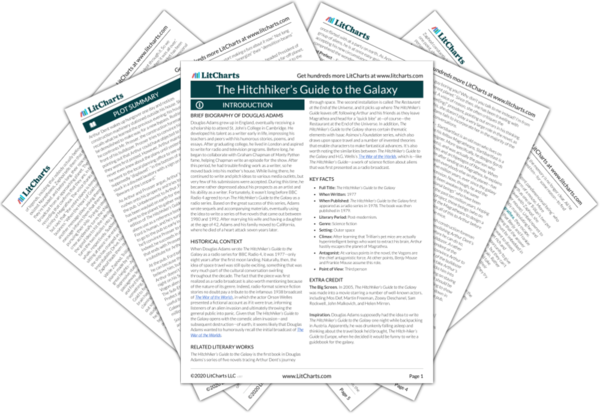LitCharts assigns a color and icon to each theme in The Hitchhiker’s Guide to the Galaxy, which you can use to track the themes throughout the work.
Meaninglessness and Happiness
Improbability, Impossibility, and Absurdity
Knowledge and Exploration
Language and Communication
